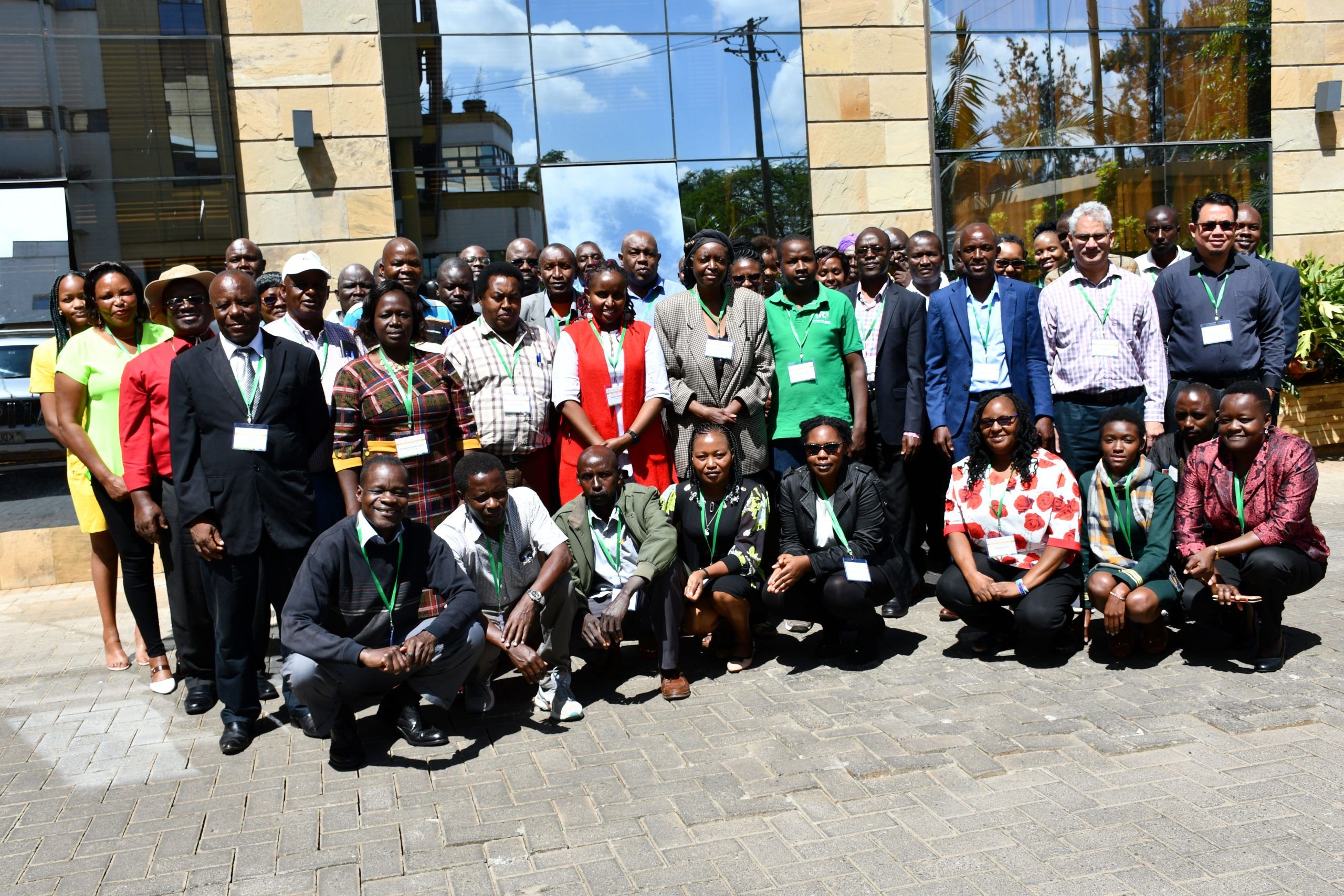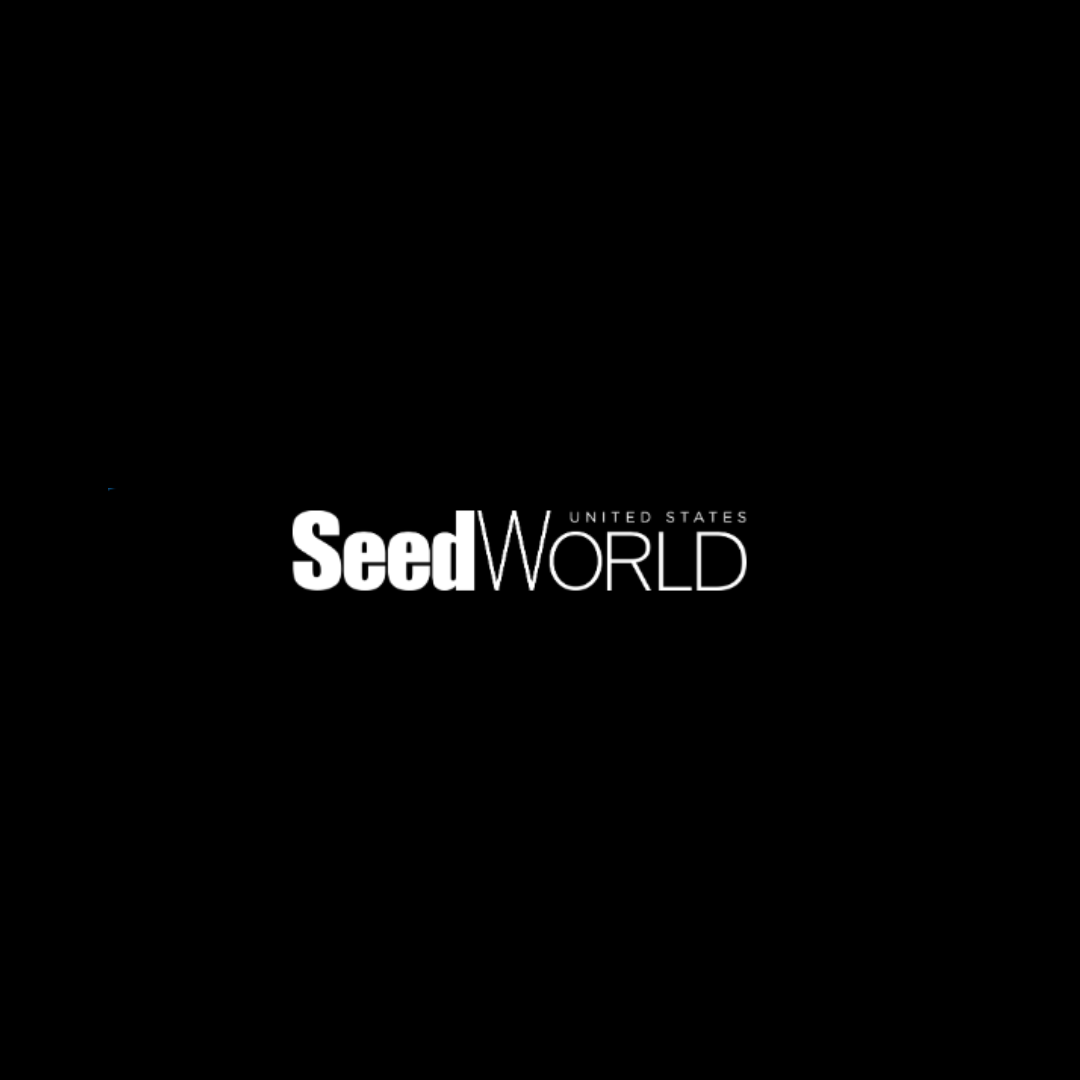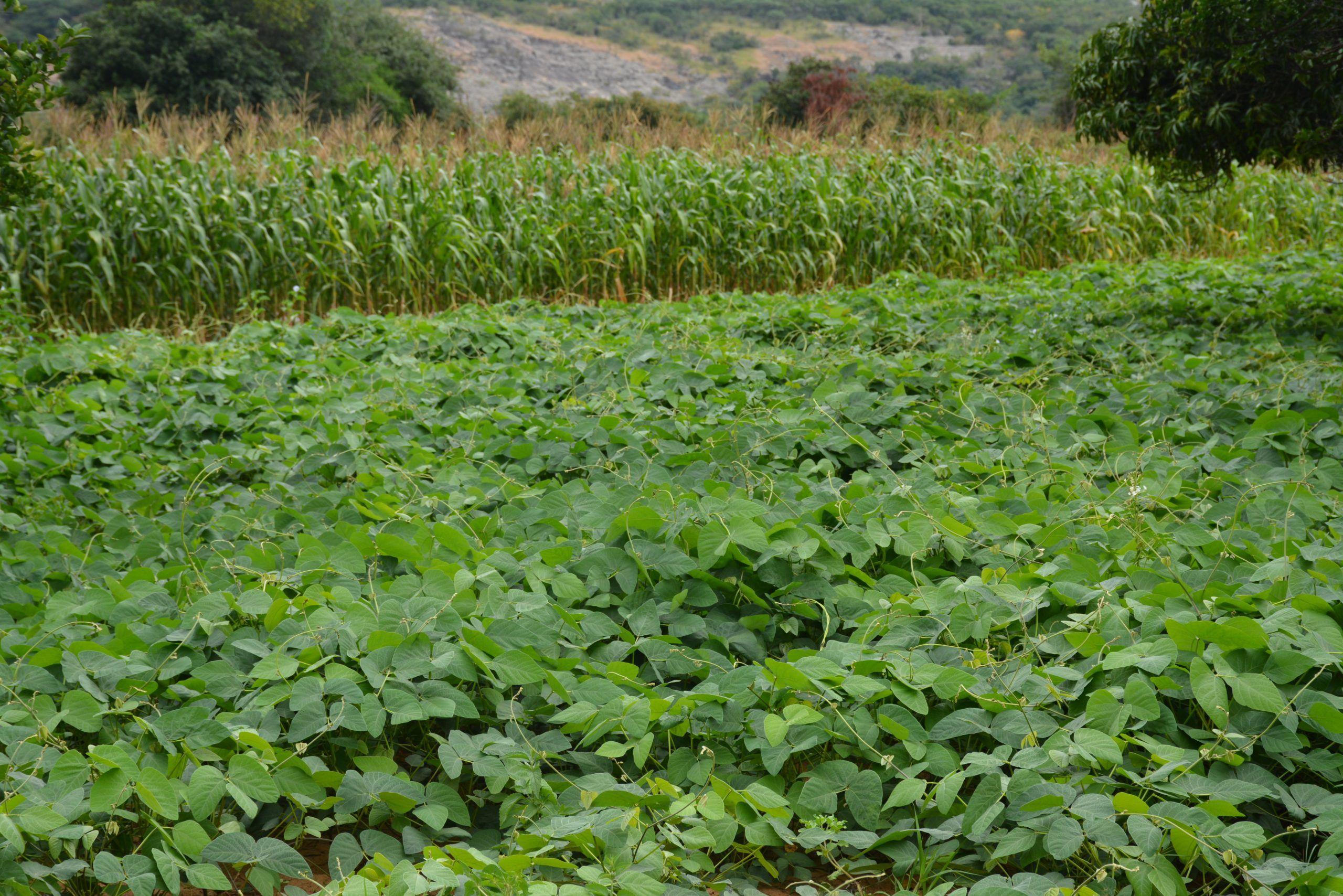Collaboration across the seed system value chain
Collaboration among diverse seed value chain actors is essential to improving seed systems for dryland crops in Kenya and contributing to food security in an era marked by climate change. This holistic approach is essential at a time when sustainable agricultural practices are increasingly becoming pertinent in semi-arid and high-potential areas, as emphasized by participants attending a multi-stakeholder seed systems meeting in Nairobi.
The Kenya Drylands Crop Seed Systems Workshop in February 2024 brought together various stakeholders from the agricultural sector, including farmers, policymakers, researchers, and the private sector. The main aim of this meeting was to identify practical ways to address critical challenges in the seed system for key dryland crops—pigeon pea, chickpea, groundnut, millets, and sorghum—essential to the livelihoods of millions in Kenya. Organized by CIMMYT and the Kenya Agricultural and Livestock Research Organization (KALRO), this collaborative effort aimed to gather insights and jointly develop a seed systems strategy to strengthen a seed supply system that matches grain demand for these essential grains.
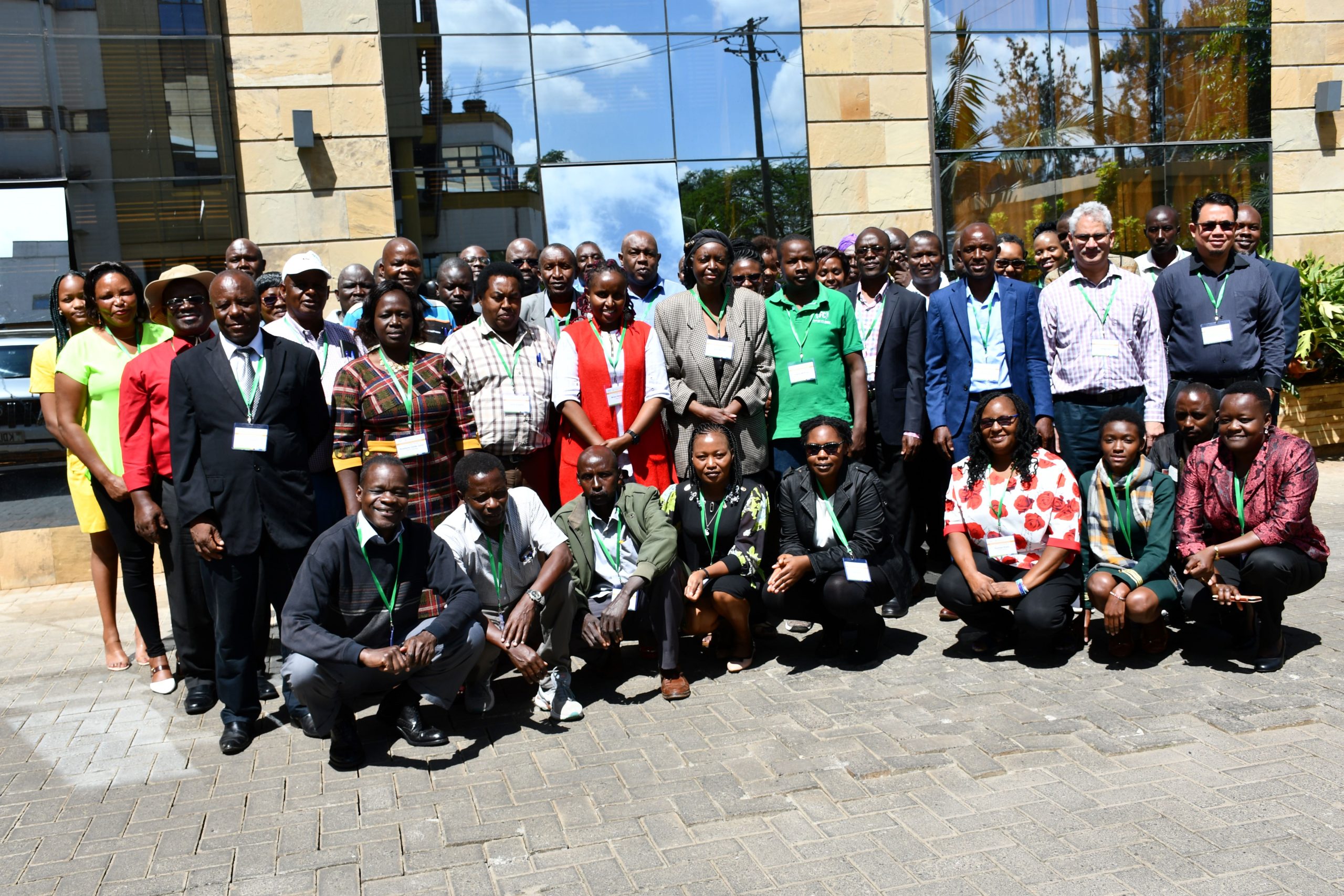
While moderating the discussion, Patrick Ketiem, director of agricultural mechanization research at KALRO, highlighted the importance of the situation. “The demand for drought-tolerant dryland crops and varieties is a clarion call for breeders to innovate further,” he explained. This reflects a broader trend across the country, where even high-potential areas are shifting to dryland crops in response to unpredictable weather patterns.
Addressing farmer needs
The workshop allowed participants to delve into the intricacies of seed systems, from varietal preferences to market readiness, highlighting the importance of collaboration among breeders, distributors, and farmers. Moses Siambi, CIMMYT’s regional director for Africa, emphasized the importance of integrating passion with science to make a tangible difference in the lives of farmers. “Our work is not just about developing varieties,” Siambi remarked. “It’s about improving livelihoods and ensuring that the benefits of our research reach the smallholder farmer,” he explained, emphasizing the broader impact of CIMMYT’s efforts to boost agricultural productivity, food security, and livelihoods in the face of climate change.
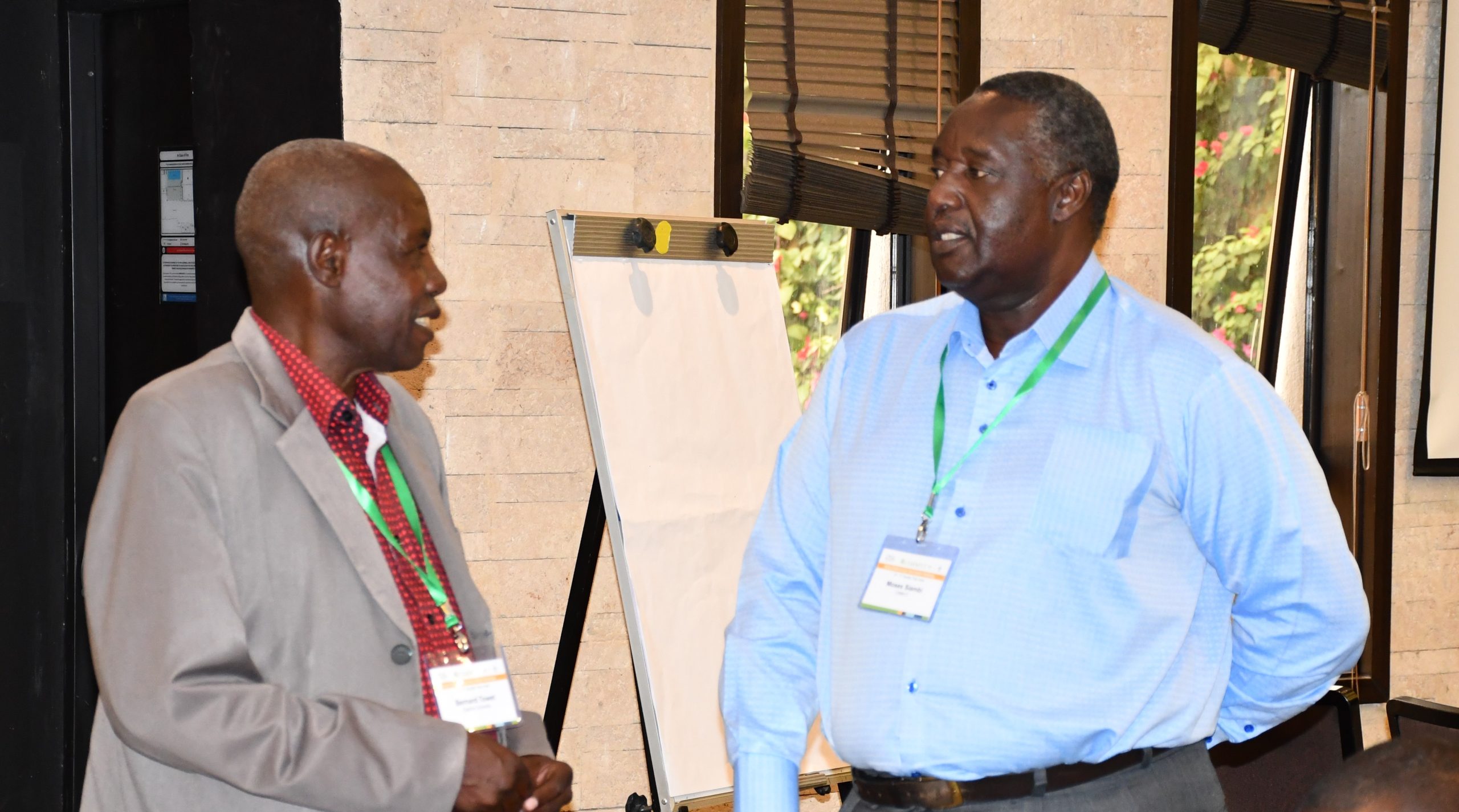
Chris Ojiewo, partnerships and seed systems lead at CIMMYT, explained the vision for the Dryland Crops program, referencing the journey of the Accelerated Varietal Improvement and Seed Delivery of Legumes and Cereals in Africa (AVISA) project, which was a culmination of a decade of research aimed at introducing new, diverse, and farmer-preferred crop varieties to farming communities through a variety of seed delivery models.
“The essence of our endeavor is to ensure that the genetic gains from our breeding efforts result in real benefits for the farmers,” he said. “Developing seed varieties with the end-user in mind is crucial to ensure that crops not only reach the farmers but also meet their specific needs effectively.”
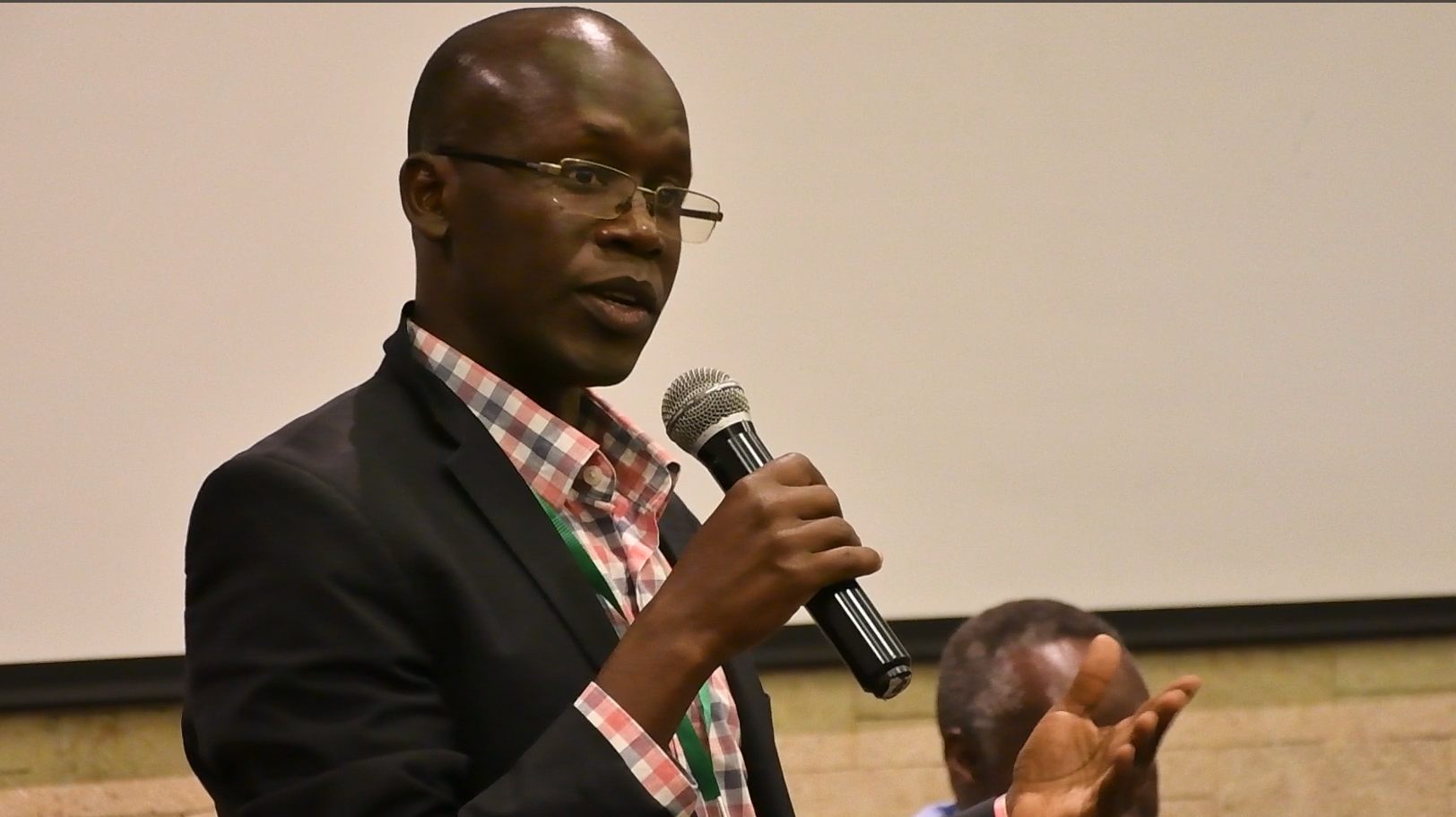
Improving seed systems
The workshop discussions also highlighted the importance of innovation in seed delivery models and the need for increased investment in the dryland crops sector as essential strategies for addressing current challenges and capitalizing on new opportunities. Investment decisions will be guided by granular data on local grain demand, enhancing seed production planning. Additionally, insights from institutions such as the Agriculture and Food Authority (AFA) and the State Department of Agriculture, consolidating per capita consumption data, will aid in determining the requisite seed supply per capita. Moreover, there is need for a mechanism for facilitating knowledge through consolidating data from existing projects that tackle comparable challenges related to food security and seed accessibility.
Lusike Wasilwa, crops systems director at KALRO, who represented the organization’s director general at the event, stressed the importance of seeds in agriculture. “From genes to gains, our focus is on developing climate-smart, nutritious crops that not only enhance soil health but also ensure food security in Kenya,” Wasilwa said. She further highlighted the importance of soil health and market development in achieving sustainable food production in arid and semi-arid lands, promoting biodiversity, and sustainable land management practices.

Cross-cutting issues
The workshop also addressed regulatory and control measures in seed production with Stellamaris Mulika, principal seed inspector from the Kenya Plant Health Inspectorate Service (KEPHIS), highlighting the importance of stringent quality control measures to ensure the dissemination of quality seed of superior crop varieties.
The importance of gender inclusivity and youth engagement in agriculture was also acknowledged, reflecting women and youth’s critical role in legume and cereal variety selection, diversifying seed sources, and meaningfully contributing to the seed value chain. Veneza Kendi, a student at Jomo Kenyatta University of Agriculture and Technology (JKUAT), proposed several interventions to increase investment capacity for farmers and aggregators, mainly from the assurance of high yields from certified seeds to farmers, serving as a motivation.
Gloria Mutheu, a seed merchant at Dryland Seed Company, highlighted the need for government support in investing in the grain sector, citing the school feeding program as an initiative to pull seed demand. Mutheu urged the government to expand the crop types in legumes and cereals, such as chickpeas, included in these school feeding programs to increase demand. This, she argued, would gradually establish an inclusive seed system for increasing uptake of these underutilized but opportunity nutrient-dense crops.
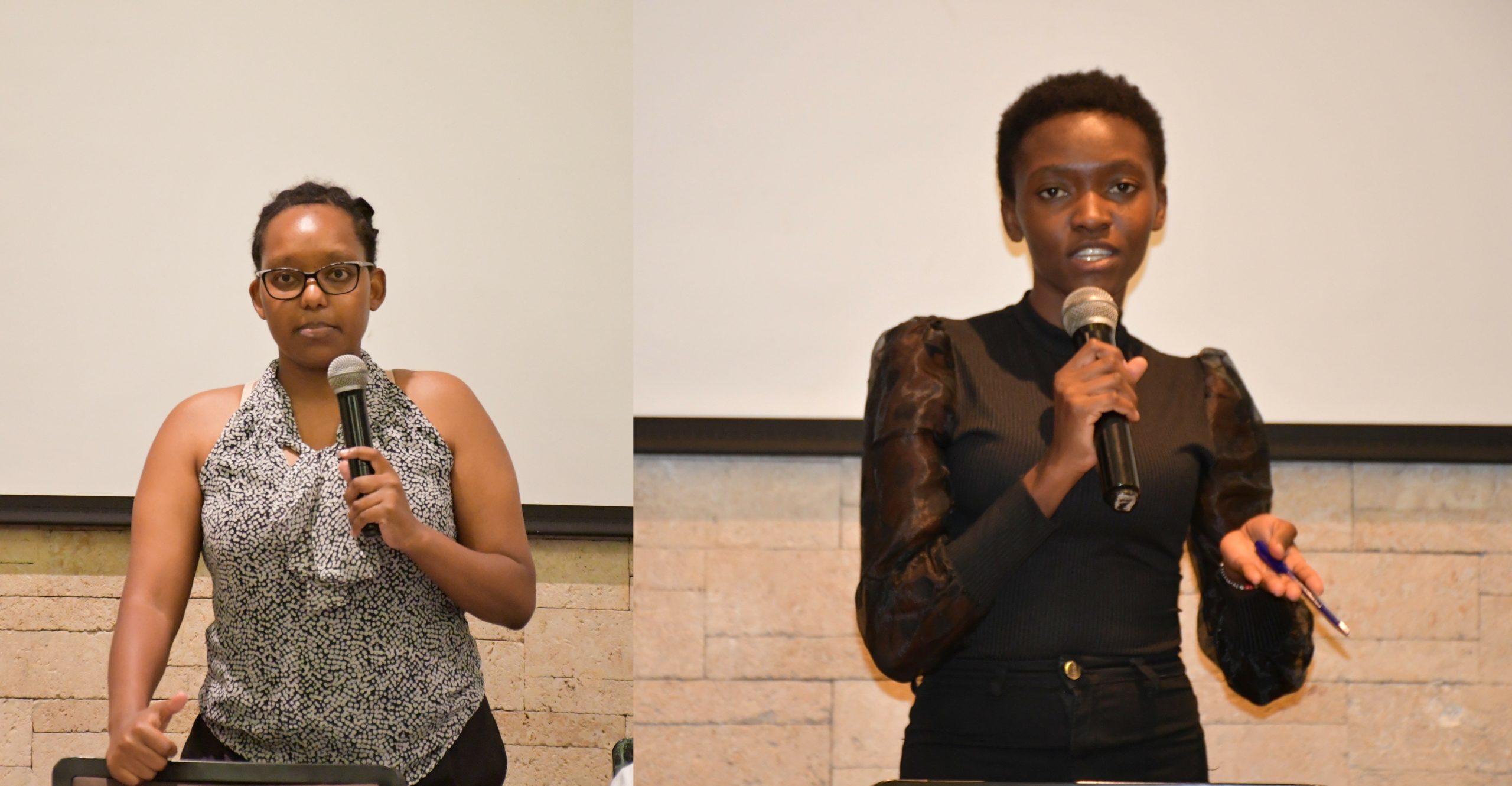
The consensus was clear: to enhance the seed systems for dryland crops, there must be collaboration across the entire value chain—from breeders to farmers, from policymakers to the private sector. This integrated approach is critical for Kenya’s climate change adaptation, food security, and promotion of sustainable agricultural practices.
Spearheaded by CIMMYT with financial support from the Bill and Melinda Gates Foundation and the United States Agency for International Development (USAID), the AVISA project seeks to improve breeding and seed systems of dryland crops, as well as the livelihoods of small-scale producers and consumers in sub-Saharan Africa. CIMMYT is leveraging this opportunity to advance research and expand its influence through its 2030 strategy that shapes the future of agriculture as a driver of food and nutrition security, and climate resilient, sustainable, and inclusive agricultural development.
